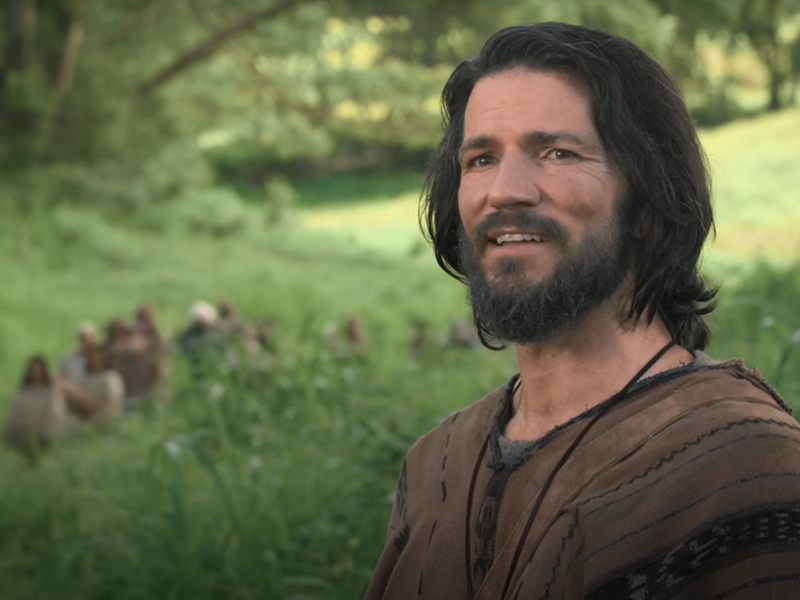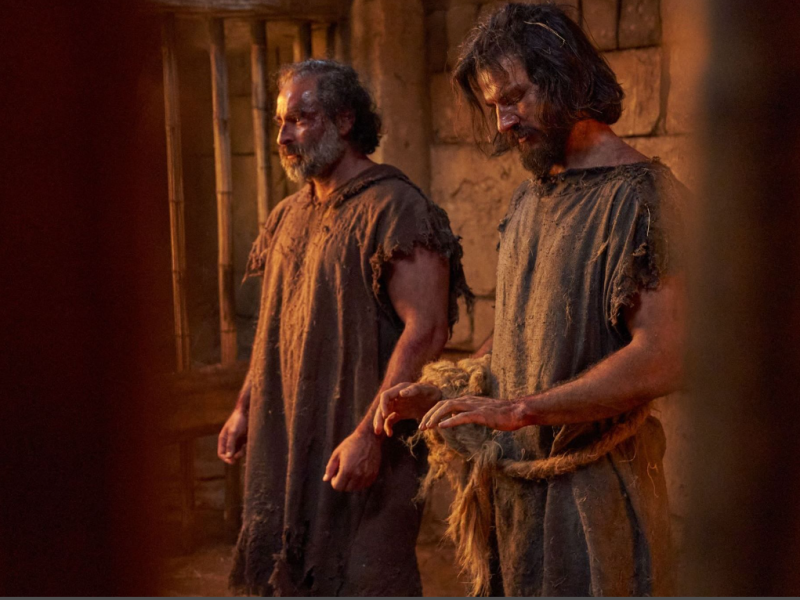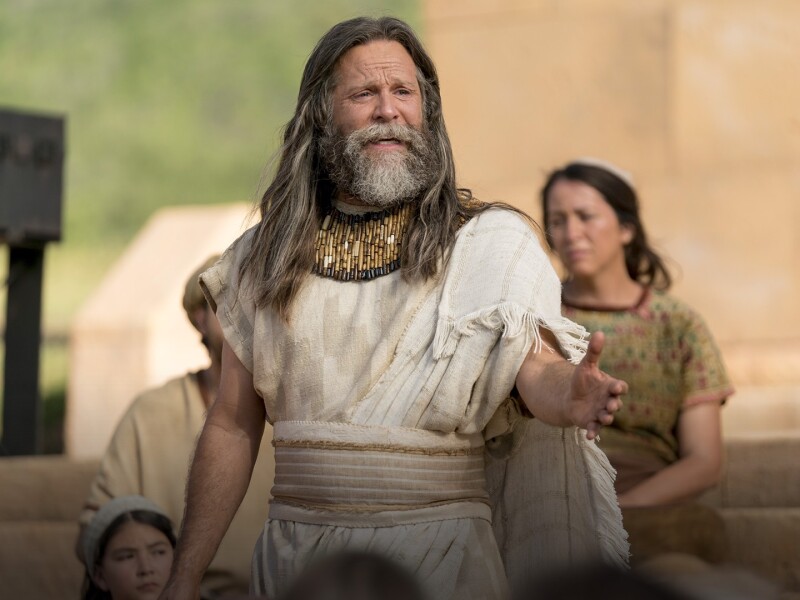According to the Title Page of the Book of Mormon, the book’s purpose is to convince all people that “Jesus is the Christ.” During this Christmas season, as believers worldwide celebrate God’s goodness and love in sending His Son, we decided to ponder how the Book of Mormon has strengthened our faith in Christ. We asked our study group guests to think about His birth, reflecting on why He came and how His coming has changed their lives. As you listen to this week’s episode, we hope you experience the true joy of Christmas—our Savior, Jesus Christ.
Our study of the Book of Mormon this year has been incredible. For 52 weeks we have dug into this book and changed. Hopefully your love of the Book of Mormon has grown. The prophet Moroni loved it too and one of the last things he wrote is for us to consider this book, all that it contains and to discover for ourselves if it is not true. He wants us to challenge the book and to learn for ourselves if it is true. As we study Moroni 10 together, listen and notice the spiritual impressions you receive as the Holy Ghost helps you discover or rediscover the truthfulness of this book and how merciful the Lord hath been to all of us, His people that he loves.
Moroni 7–9 are teachings and 2 letters from Mormon that Moroni decided to include on the plates. They describe overwhelmingly sad circumstances, and yet the council is to have hope. How can we have hope, and faith, and charity regardless of our circumstances?
Do you remember the magazines they used to have for kids with Seek and Find games? These would have a list of items hidden in the picture that you had to find. Today as we study Moroni 1–6 we are trying out a seek and find podcast where we look for questions and the administrative details that can point us to the answers.
As the Book of Mormon nears its conclusion we have included a few more war chapters. It's fair to ask why Moroni, who saw so much war and destruction himself, would choose to bring in these chapters describing bloodshed and evil. This week while reading Ether 12–15 we will try to understand the context Moroni was coming from, the many chapters of war in the Book of Mormon, and the lessons we can learn from modern day conflict.
When the Jaredites arrived at the promised land, they rushed onto dry ground and thanked the Lord for the “multitude of his tender mercies” (Ether 6:12). How many times are we that overwhelmed by the grace and guidance of God in our lives? And how hard can it be to even recognize those tender mercies? Ether 6–11 is full of tender mercies that some of the people saw, and others missed because of their pride. So, let’s use this week to find gratitude for all the little things from God in our lives.
What comes to your mind when you hear the word “cry”? Is it a crying baby, a good cry with a friend? Maybe you recently cried or are even crying right now. This word can have several meanings, and everyone reacts differently to those who cry. Today’s discussion of Ether 1–5 contains many cries, and we are going to discuss them and how the Lord responded.
Moroni addresses us directly in Mormon 8:35 when he says, “I speak to you as if you were present, and yet ye are not. But behold, Jesus Christ hath shown you unto me, and I know your doing.” What do you think Jesus showed him? And as a result, what do you think Moroni is going to say to us? This week’s chapters of Mormon 7–9 answer those questions. Let’s prepare our hearts to receive his counsel.
Take a moment and place your hand over your heart. How is your heart today? If it could talk, what would it say? Have you ever heard the sound of your own or a loved one’s beating heart on a stethoscope or ultrasound? Of all the things to hear, it is the heart that connects you to life because it is life. And for today’s discussion of Mormon 1–6, the heart dictated life for the Nephite people. Let’s dive into the impact their hearts had not only on themselves but also on our lives today.
This principle from 3 Nephi (and some help from my stopwatch) reveals an empowering truth.
3 Min Read
“Most of the best people who ever lived weren’t very famous either. Serve and grow, faithfully and quietly.”
3 Min Read
God wants us to live with joy, not guilt that we are not doing enough. Find peace by noticing the subtle signs of progress in your life.
5 Min Read
Alma's son Corianton pursued a harlot and had significant concerns about the gospel. What can we learn from what Alma chose to say to him?
4 Min Read
Did you know Alma chapters 30–35 were originally one chapter? Reading the text as one block reveals an important question (and inspiring answer).
4 Min Read
I’ve realized Amulek is poignant inspiration to anyone feeling like their life is falling apart even though they chose to do what was right.
3 Min Read
We know we are the spirit children of Heavenly Father, so how is it that we can also be the children of Christ? The answer is wonderfully ennobling.
2 Min Read
We love Enos for his heartfelt prayers. Here are a few details about how he prays you may’ve not noticed but that can help you in life.
4 Min Read
Studying Jacob may help you see how both deep sorrow and anxiety can coexist with God’s goodness.
4 Min Read
Has the promise of prospering in the land led us to believe that if we keep the commandments, life will be easy?
5 Min Read
“Falling down” at the feet of Jesus can become an instructive, beautiful, inspiring detail in Lehi’s vision of the tree of life.
4 Min Read
Sometimes knowing leads to doing, and other times doing leads to knowing.
4 Min Read
Even after experiencing loss and trials in the wilderness, Nephi says his family lived “after the manner of happiness” (2 Nephi 5:27). What does that look like for us, and how can we learn from Nephi and his people’s examples? As we study 2 Nephi 3–5, we can hopefully reaffirm, as Nephi did in his psalm, that despite temptation and conflict, our hearts rejoice—and we can trust in God forever.
This week’s Come, Follow Me section is relatively short—but not at all short on doctrine. The prophet Lehi’s final words are packed with so much eternal truth. We'll focus on listening and learning by the Spirit as we study together from 2 Nephi 1–2.
With all the heartache, suffering, and devastation going on in the world, it’s easy to wonder why bad things happen to good people. But instead, what if we consider how good people respond when bad things happen? This is the approach we’ll take as we study and learn from 1 Nephi 16–22. Looking at it this way helps us realize challenges can bring us to a place where we’re most likely to meet God. And if bad things happening help us get to know God better, then many of you have met him 100 times over.
Last week, we left off with 1 Nephi 10:17 when Nephi told us he was desirous that he might see, hear, and know of the things in his father’s vision. That’s a big ask—to see, hear, and know. So, what are you desirous to learn? As we go over 1 Nephi 11–15, we’ll explore what Nephi found out and how to apply these things in our lives.
This week, we get to study 1 Nephi 6–10 and focus on Lehi’s dream. If you have read these chapters many times, the Come, Follow Me manual challenges us this time to think about the vision the way Lehi did—within the context of our families and those we love. This approach will help us see symbols like the iron rod, the great and spacious building, and the tree of life in a new light, revealing deeper lessons that apply to our daily lives.
In last October’s general conference, Sister Tamara W. Runia challenged us to “zoom out to view family relationships as a powerful vehicle to teach us the lessons we came here to learn as we turn to the Savior.” Many of us are familiar with the story of Lehi and his family leaving Jerusalem and going back to get the plates. Today, our challenge is to zoom out and view the family relationships in this story, exploring how the lessons in 1 Nephi 1–5 can turn us to God and the Savior.
















